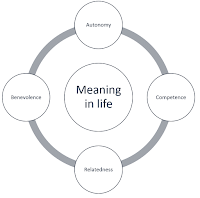Is there a good case for 'positive education'?

In this post I expressed my skepticism about something which is called Positive education , an approach advocated by Martin Seligman (photo). What that is, is explained in this video which I also mentioned. My two reasons for being skeptical were 1) that I found the definitions of positive education as mentioned in the video confusing rather than clarifying, and 2) that it is not clear to me to what extent well-being should be an outcome measure in education ( read the post for more details on that point).


